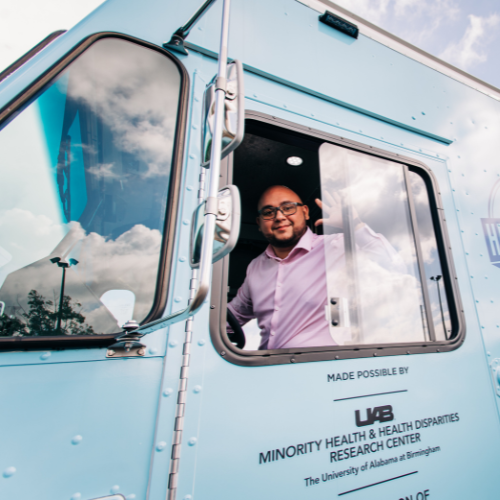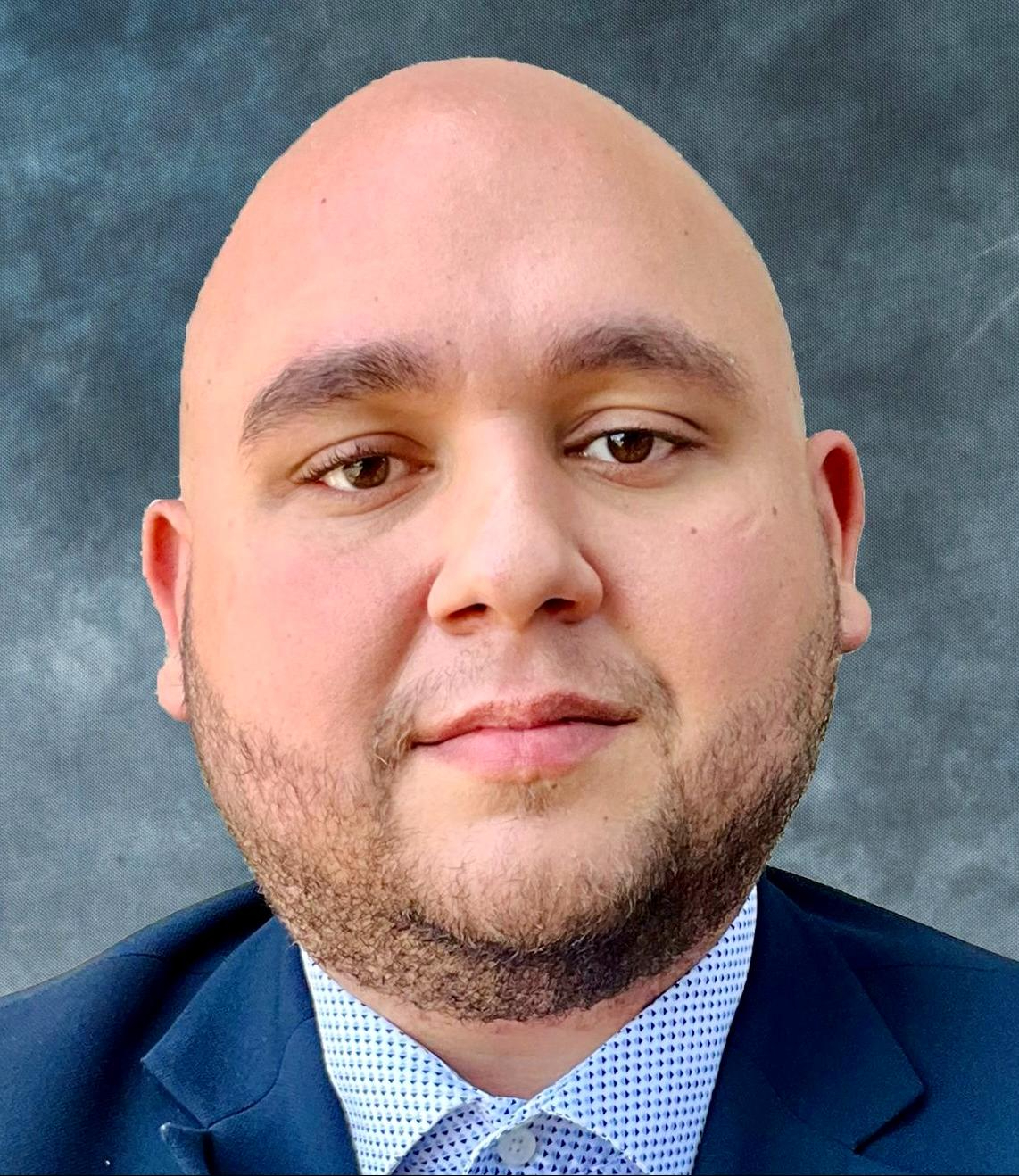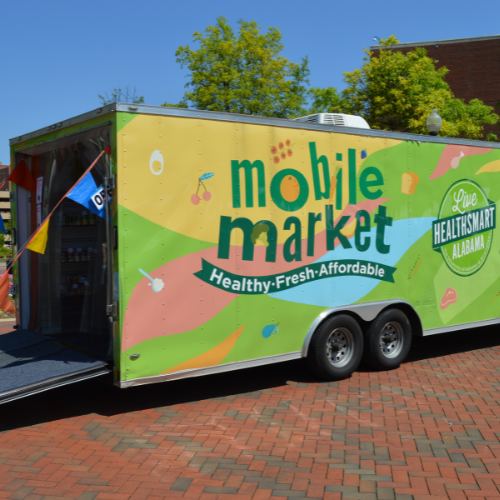 Hispanic Heritage Month, which starts on September 15 and ends on October 15, provides a unique opportunity for reflection and a distinct call to action. To honor this, the Heersink School of Medicine Office for Diversity and Inclusion spotlights a strong movement for change in Alabama. This change is brought about through the program Live HealthSmart Alabama (LHSA), which makes its home here at UAB.
Hispanic Heritage Month, which starts on September 15 and ends on October 15, provides a unique opportunity for reflection and a distinct call to action. To honor this, the Heersink School of Medicine Office for Diversity and Inclusion spotlights a strong movement for change in Alabama. This change is brought about through the program Live HealthSmart Alabama (LHSA), which makes its home here at UAB.
LHSA is a transformational initiative centered on making good health simple for all Alabamians. With a network of more than 100 partners, trusted community relationships, proven revitalization strategies, and layered programming, this program strives to decrease the incidence of chronic disease and achieve health equity across the state.
To reach its communities, Live HealthSmart Alabama has a fleet of mobile units that address access to healthy food and prevention and wellness care. The Mobile Wellness van provides health screenings and the Mobile Market brings fresh, affordable groceries to underserved neighborhoods. Dalton Norwood, M.D., director of Prevention and Wellness, and Lemeshia Chambers, Ph.D., MSW, program director of Live HealthSmart Alabama, along with their team, help bring sustainable change to neighborhoods in the greater Birmingham area.
Interventions in the Hispanic Community
 Norwood, a research scientist from Honduras, explained "With Live HealthSmart Alabama, we are trying to contribute to health equity by addressing social determinants of health in our population, particularly in underserved communities." While these neighborhoods are home to people of many racial and ethnic backgrounds, Norwood analyzed the data and saw a substantial need for members of the Hispanic Community.
Norwood, a research scientist from Honduras, explained "With Live HealthSmart Alabama, we are trying to contribute to health equity by addressing social determinants of health in our population, particularly in underserved communities." While these neighborhoods are home to people of many racial and ethnic backgrounds, Norwood analyzed the data and saw a substantial need for members of the Hispanic Community.
Using a systematic method that included data analysis of various social determinants of health (health outcomes, income status, and health coverage) five Birmingham neighborhoods were chosen as “demonstration zones .” These communities are home to underserved minorities, mainly African Americans, and a growing percentage of Hispanics. Kingston, East Lake, Bush Hills, Titusville, and the UAB Campus—are just a few of the locations for Mobile Market and the Mobile Wellness stops.
Why are these locations a particular area of focus for LHSA?
 Norwood says that many of the challenges that the Mobile Market and Mobile Wellness vans address are challenges faced by people in these areas: "What we see in these communities is a clustering of different social determinants of health that can have a negative impact on health. For instance, healthy eating is often a challenged task because they live in food deserts, that can have a significant influence in a populations health."
Norwood says that many of the challenges that the Mobile Market and Mobile Wellness vans address are challenges faced by people in these areas: "What we see in these communities is a clustering of different social determinants of health that can have a negative impact on health. For instance, healthy eating is often a challenged task because they live in food deserts, that can have a significant influence in a populations health."
He went on, "People usually eat unhealthy items because it is what they have access to. So, they end up eating fried food or only snacks. Because they do not have easy access to fresh vegetables and fruits, they don’t consume them. That is where the intervention of a Mobile Market comes in place, providing healthy options such as vegetables, fruits, and lean meats at affordable prices in convenient locations within their neighborhoods." Paired with the Mobile Market, is the Mobile Wellness van which educates community memebers on the importance of consuming these healthy food options and how they are related to health outcomes.
Another challenge that Norwood, who worked in the rural communities of Honduras before coming to Birmingham, touched on was access to healthcare. He explained, "We find many individuals don't have health coverage or a medical provider. This is particularly evident in the Hispanic community where there are additional burdens unique to this population, combined with the same social determinants of health as other underrepresented minorities.”
This set of unique problems requires a multidimensional and culturally sensitive approach.
Norwood unpacked, “The most important reason why not everyone has a health provider is that there is a big need for providers that are both culturally and linguistically capable of attending to them. Everyone wants a healthcare provider that understands your culture and its able to communicate appropriately."
This is an insight that Chambers echoed, saying, "It was, at first, tough to get the Hispanic Communities' trust. They would trust us enough to come out and have their wellness numbers evaluated and checked to find out where they were health-wise. But they came out in droves once they realized that we had Spanish-speaking and Hispanic team members they could trust. It was a highly successful opportunity to evaluate those community members' numbers and get them on the right track for better health."
The trust-building steps were not complicated, especially with language; she explained, "It was just a warm, welcoming smile. We were not judgmental. We were there truly to help them, which was evident in our actions, and by our actions…we allowed them to take control of the conversation. We didn't try to lead the conversation. If they had particular questions about their health, we answered those questions fully and completely to the best of our ability. We didn't push them off on someone else."
This level of attentive care is paramount as it not only overcomes the challenge of trust through time but also ensures that word spreads through these tight-knit communities that are aware of what is on their doorstep in terms of free healthcare and low-cost fresh food.
This awareness addresses both geographical access and cost barriers; as Norwood explains, "The Mobile Wellness and Mobile Market vans break the barrier of transportation to the location for people who wouldn't normally be able to travel to a static venue. Secondly, and possibly most important is that our mobile wellness screenings are at no cost for them. That means that the individuals who don't have to health coverage are able to be seen. The Hispanic population is one of the underrepresented minorities with the highest uninsured rates, with nearly one in three lacking coverage, compared to 13% in their white counterparts."
The moment his work in the Hispanic Community hit home for Dr. Norwood was when he provided health screenings and care for people who hadn't been able to go to the doctor for decades. He reflected, "In the Latino population we served, there were participants that didn't have healthcare or age and sex cancer screenings since they arrived in this country. For some people, that meant 20 or 30 years without health screenings." In these moments, Norwood sees the impact that he and the whole team at LHSA make daily in communities that are so often overlooked.
Please visit this page for more about when and where you can catch the Mobile Wellness and Mobile Market vans or about what Live HealthSmart Alabama does to make good health simple.